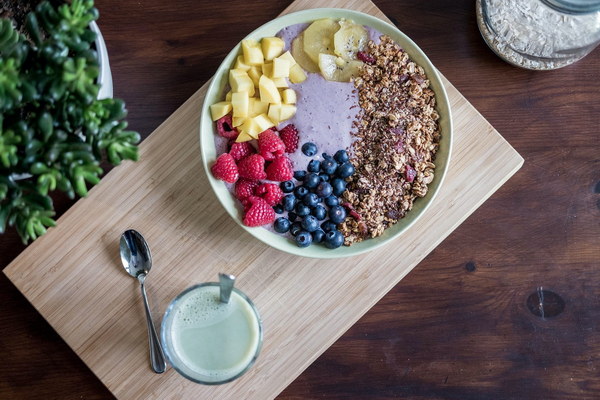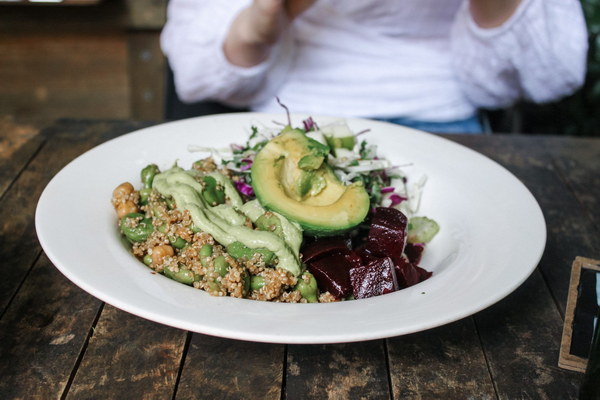Balancing Your Complexion Natural Remedies for Uneven Skin Tone
Introduction:
Uneven skin tone, characterized by patches of darker or lighter skin, can be distressing and affect one's self-confidence. While factors like genetics, hormonal changes, and environmental exposure play a significant role in skin tone variations, there are several natural remedies that can help balance your complexion. In this article, we will explore various methods to tackle uneven skin tone and achieve a more even, radiant complexion.
1. Diet and Hydration:
A balanced diet and adequate hydration are crucial for maintaining a healthy complexion. Here are some dietary tips to consider:
a. Incorporate antioxidants: Foods rich in antioxidants, such as berries, spinach, and nuts, can help protect your skin from free radicals that cause damage and lead to uneven skin tone.
b. Stay hydrated: Drinking plenty of water keeps your skin hydrated and plump, reducing the appearance of uneven skin tone. Aim for at least 8 glasses of water daily.
c. Avoid excessive sugar and processed foods: High sugar intake can exacerbate skin issues, including uneven skin tone. Opt for whole foods and minimize the consumption of processed items.
2. Sun Protection:
Sun exposure is one of the leading causes of uneven skin tone. To protect your skin, follow these sun protection tips:
a. Apply sunscreen: Use a broad-spectrum sunscreen with an SPF of at least 30 daily, even on cloudy days. Reapply every two hours or after sweating.
b. Seek shade: Try to stay in the shade during peak sun hours (10 a.m. to 4 p.m.).
c. Wear protective clothing: Long-sleeved shirts, pants, wide-brimmed hats, and sunglasses can help shield your skin from harmful UV rays.
3. Exfoliation:
Exfoliating helps remove dead skin cells, revealing brighter, more even skin. Here's how to incorporate exfoliation into your skincare routine:
a. Gentle chemical exfoliants: Use products containing alpha-hydroxy acids (AHAs) or beta-hydroxy acids (BHAs) to gently exfoliate the skin without over-drying.
b. Physical exfoliants: Microdermabrasion or a gentle scrub can also help remove dead skin cells. However, avoid harsh scrubs that can irritate your skin.
c. Frequency: Exfoliate 2-3 times a week, depending on your skin type and sensitivity.
4. Topical Treatments:
Several natural ingredients can help even out your skin tone:
a. Vitamin C: This antioxidant helps protect your skin from UV damage and can lighten dark spots. Look for products containing vitamin C derivatives, such as ascorbic acid or magnesium ascorbyl phosphate.

b. Licorice extract: This natural ingredient has skin-lightening properties and can help reduce the appearance of dark spots and hyperpigmentation.
c. Kojic acid: Derived from mushrooms, kojic acid is known for its skin-lightening effects and can help even out your complexion.
5. Lifestyle Changes:
In addition to the aforementioned remedies, adopting a healthy lifestyle can also contribute to an even skin tone:
a. Get enough sleep: Lack of sleep can lead to stress and inflammation, which can exacerbate skin issues.
b. Manage stress: Stress can trigger hormonal changes that lead to uneven skin tone. Practice stress-reduction techniques, such as meditation, yoga, or deep breathing exercises.
c. Avoid smoking: Smoking can cause premature aging and exacerbate skin issues, including uneven skin tone.
Conclusion:
Achieving an even skin tone is a gradual process that requires patience and consistency. By incorporating these natural remedies into your daily routine and adopting a healthy lifestyle, you can work towards a more balanced and radiant complexion. Remember to consult with a dermatologist if your uneven skin tone persists or worsens, as it may be a sign of an underlying condition.









